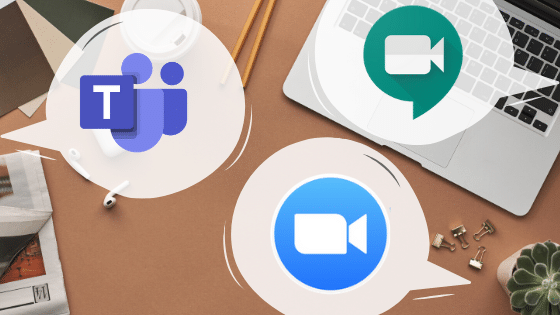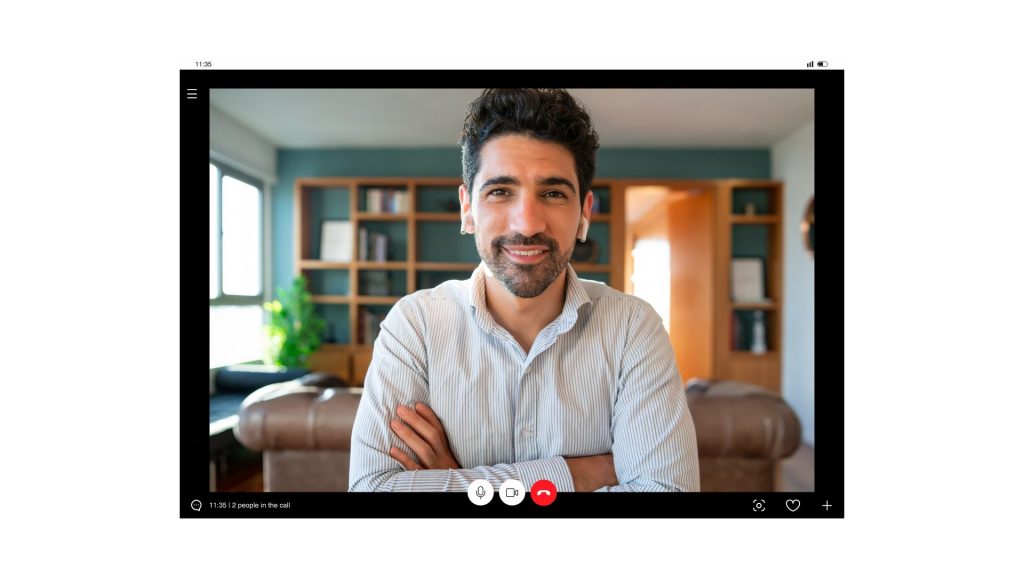Before the COVID-19 pandemic, many companies used virtual job interviews as a last resort. Face-to-face interviews were considered the norm, so much so that some recruiters would rather reschedule or cancel an interview than do it online.
Telecommuting has become a big part of the corporate world since the COVID-19 pandemic. Today, many employers are realizing that virtual recruiting is more effective than ever. Online job interviews save time and money for both the employer and the candidate, and allow for a more efficient recruitment process.
Preparing for a virtual interview
If you don’t have much experience with videoconferencing, you may need to do some preparation, but the technology aspect shouldn’t hold you back from a successful interview. Here are some tips for a successful virtual meeting:
1. Technological hardware
When you are invited to your virtual interview, the recruiter will inform you of the platform that will be used. Some companies use consumer platforms such as FaceTime and Skype, while others use dedicated business platforms such as Zoom, Teams and WebEx. The recruiter should give you some guidance on this, otherwise, don’t hesitate to ask.
If you’ve never used the videoconferencing platform you’ve been invited to use, it’s a good idea to test it out beforehand by asking someone close to you for help. This will allow you to familiarize yourself with all the technical aspects of the platform.

It is best to use a computer for the duration of the virtual interview. It offers better stability and a better camera angle. Make sure you have a stable Wi-Fi connection and that your device is plugged into a power source to prevent it from running out of battery.
2. Dress code
Virtual interviews are not much different from a face-to-face meeting: dress the same way you would in a face-to-face interview and maintain the same level of professionalism. Put a smile on your face and make sure you make a good impression despite the distance. Work hard to create a connection; pay attention, avoid looking at yourself too much on your screen, keep the focus on the recruiter by paying attention to what they are saying and the questions they are asking.

3. Your environnement
Not home alone? Take the time to let others know that you have an important call. This will help you avoid being disturbed. Let them know when, where and for how long you will be meeting. If you have a pet, make sure it cannot disturb you or make noise.
Choose a quiet place where you will not be disturbed. If you hear background noise, use headphones. Turn off your cell phone and any other devices that may be making noise.
Clean up the environment around you. Open your camera to see what is visible in the background and check what you are comfortable showing on the video call: put away your laundry and make sure your wall decorations are appropriate in a professional setting.
4. Position yourself
Position your device so that the person you are talking to has a clear view of you. If necessary, use books to elevate your computer. Do not sit too far (or too close) to the lens. It is best to place the camera at eye level; so that when you look at the screen, you feel as if you are looking at the person you are talking to.

Make sure your face is well lit. Natural light and side lighting work best. Find a light source that illuminates your face, not your back. Backlighting can often make it difficult to see: if you can’t change the backlight, try putting another light in front of and to the side of your face.
5. The preparation required
Go read about the company, learn about their mission, values, accomplishments and the services or products they offer. Being informed will make you feel more in control and will demonstrate your interest in the organization.
Have a glass of water ready (you may be talking a lot). Have important documents such as your resume, job offer or some notes ready. These documents may be useful, but be careful not to rely on them. Avoid looking at your papers instead of the recruiter.
At the time of your interview
Make sure you are on time, even early for your virtual interview. If there is a problem, you will have time to fix it. Being on time and prepared will help reduce your stress.
On some platforms, you will be in direct contact with the recruiter. On others, you will be put in a virtual waiting room and the recruiter will let you in once they are ready to see you. If the recruiter is not present at the appointment time, wait a few minutes. Technical problems may have occurred on their end. If after a few minutes the person is still not connected, don’t hesitate to call them.
Once the interview is over, close the platform so that the recruiter can no longer see or hear you.

In conclusion, remember to be yourself. Whether the interview is in person or virtually, the person you are meeting on the other side of the screen wants to know more about you, your skills, and your accomplishments and ambitions. Being yourself will inevitably help you succeed!

